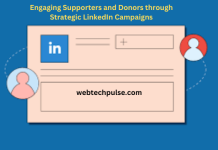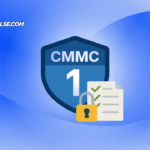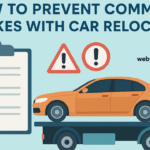Nowadays, we use our phones for everything, including email, calls, text messaging, games, photography, and, perhaps most prominently, social media.
If you are active on multiple social media platforms, it can be especially difficult to put your phone away. Jumping from one app to the next is a pretty common habit for most people who are overly attached to their social media.
If you think you need professional help with your social media addiction, consider reaching out to mental health professionals via platforms like MyTherapist. For more information, follow this link: https://www.mytherapist.com/.
In the meantime, there are things you can do to help manage your social media usage.
In this article, we’ll discuss some concerns related to social media and mental health; we’ll also give you some tips and tricks to get your social media addiction under control.
Social Media & Mental Health
One of the biggest threats of social media is to your self-confidence. You can often think of social media like everyone’s personal highlight reel: you will likely only see the good parts.
For that reason, it can be common for people to get caught up in comparing themselves to others, thereby causing a loss of a lot of confidence in self-worth and self-love.
Everyone is on their own personal journey, but social media can make it seem like you are falling behind in your professional career, or not good enough, attractive enough, or active enough.
Likewise, social media can be a tricky place to converse with others. Your mental health should be of top priority.
Sometimes, speaking with others without face-to-face interaction can remove a bit of empathy and certain body language needed to get the full value of a conversation.
Overall, limiting your social media can be great for your mental health. Here’s what you can do to help yourself restrict your social media usage.
10 Tips & Tricks for Limiting Social Media Usage
1. Timer:
Most apps will have a time limit that you can set for yourself in the app settings. When you set a timer, an alarm will go off, alerting you when you have spent, say, 1 hour on that app for the day. This can help you manage your time spent on each app.
2. Screen Time:
If you have an iPhone, you can take advantage of a feature most Apple products offer: you can easily access information about your screen time. You can see your daily average of time spent on your phone and which apps you use most that day or that week. Being aware of the time you spend on your phone can be an excellent first step to recognizing the problem at hand.
3. Screen Time Details:
Within settings, you can also use the screen time option to schedule downtime, set app limits, and set communication limits.
4. Turn Off Notifications:
Notifications can be the primary reason you even pick up your phone in the first place. If you do not want your apps to alert you of notifications, you can turn off the notifications within your settings.
5. Do Not Disturb:
If you do not want to turn off your notifications long-term, but you do want to turn them off while you are working, you can turn on “do not disturb.” This will allow notifications to come in, but your phone will not light up. This mode will enable you to still be contactable but not easily distracted.
6. To Sleep:
Most people spend extra time on their phones before going to sleep. This can be a slippery slope when trying to aid your mental health and get a good sleep. To give yourself the gift of rest, and to help control your social media usage, try putting your phone out of reach before getting into bed. Likewise, give yourself 10 minutes when you wake up to just be present before you pick up your phone.
7. Mealtime:
Another good time to practice limiting social media is during mealtime. Even when you are eating by yourself, try to just be present with your thoughts and experiences.
8. Unfollow:
If you are following people you know are not healthy for you, don’t be afraid to unfollow. When you stop following people who distract you or get under your skin, you might notice yourself checking your phone less and less.
9. Cleanse:
To really test your social media limitation ability, consider taking a break from social media altogether. Your profile will not go anywhere, and any critical information you need to receive will reach you in other ways. First try one day, then one week, and see how you do.
10. Accountability:
Sometimes, overcoming any challenge requires the help of a friend. Let a friend know that you are trying to limit your social media, and give them permission to hold you accountable.
Takeaway
It’s no secret that, in many ways, social media and the internet dominate much of our daily lives.
Fortunately, even those experiencing an addiction to social media can take steps to remove themselves from toxic environments and develop alternative coping mechanisms.
It can be challenging to remove yourself from the online world, but sometimes, it’s for the best.
Author Bio : Marie Miguel Biography

Marie Miguel has been a writing and research expert for nearly a decade, covering a variety of health- related topics. Currently, she is contributing to the expansion and growth of a free online mental health resource with MyTherapist.com. With an interest and dedication to addressing stigmas associated with mental health, she continues to specifically target subjects related to anxiety and depression.












